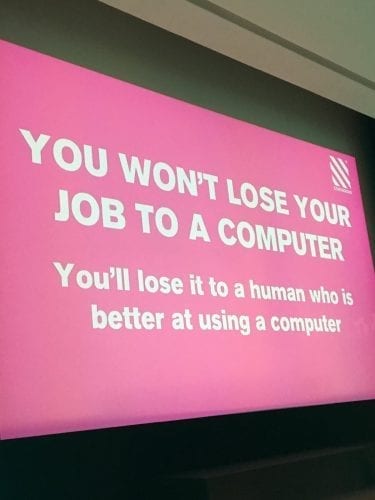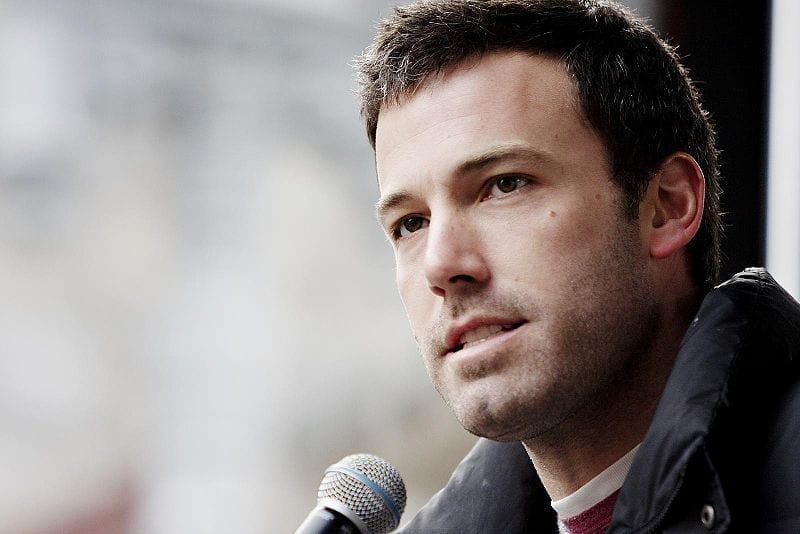The100: A.I., Disney’s mindsets and Ben Affleck
Behold the Sky Rabbits!
(Alleged) AI and some of its applications are snake oil. Sold as a remedy for something-or-other but having no real benefit or worth.
That’s what Arvind Narayanan, Associate Professor of Computer Science at Princeton (yikes) thinks. And after reading his accessible presentation entitled How to recognise AI snake oil, I’d be inclined to agree with him.
He divides AI into 3 areas:
- Perception – facial recognition, Shazam etc
Genuine, rapid technological progress here. It works so well because there is no uncertainty or ambiguity. It’s right, or it’s wrong. - Automated judgement – exam marking, copyright detection etc
Not perfect, but improving. Yet neither will it ever be perfect. They involve judgment and are open to argument. - Predicting Social Outcomes – job performance, at-risk children etc
Fundamentally dubious. And there within lies your snake oil. Because AI can’t predict the future any better than we can …and in some cases worse-so.

Narayanan warns:
“AI excels at some tasks, but can’t predict social outcomes. We must resist the enormous commercial interests that aim to obfuscate this fact. In most cases, manual scoring rules are just as accurate, far more transparent, and worth considering.”
However, should you be struggling for the opening words of your first novel, then (alleged) AI could be worth a shot.
The accidental brilliance of these opening lines generated by a achine are quite something. How about Behold the sky rabbits! or even The Black Stone was aching from the rain. I’d be hooked…
Purveyors of unvarnished truth
Simon Chadwick has written about how the role of the researcher has changed:
“…In the space of a couple of decades, we have gone from purveyors of the unvarnished truth (data) to the unveiling of business insights. But insights are not insights unless they lead to action. In the absence of action, they are merely nice to know.”
And that, despite all these changes, empathy is what ultimately converts data into insights:
“There is one attribute or skill that our hero needs above all… That attribute is empathy. Empathy is what ultimately converts data into insights; and empathy is what allows insights to have impact.”
I also liked this… a lot:
“For as a wise CMO said nearly a decade ago, the presentation should last 10 minutes, the conversation should go on for hours.”
(We’re actually in the midst of thinking about what we can do to make our own presentation debriefs even punchier. Any input you can give would be greatly appreciated.)
Small yet mighty
“My budget has increased by 100%.”
Said no-one.
Ever.
So this deck from Julian Cole at Planning Dirty, which shows 200 campaigns that were executed for under $20k, is worth a perusal. It has case studies across every category you can imagine.
I thought Pure Imagination from the Alzheimer’s Association was magnificent.
“Don’t tell anyone”
@alecstapp built a brilliant twitter thread with numerous, bite-sized nuggets of inspiration from tech visionaries.
Bezos is superb. There is also Gates, Bowie, and even Ben Affleck talking about streaming subscription services 3 years before Spotify was ever launched.
And make sure to scroll down to the part where he shows examples as to why we shouldn’t believe everything we read.
“Here’s to the crazy ones”
Steve Jobs gives us a lesson in marketing (in his shorts). He’s talking about that glorious Think Different advert and why they shouldn’t (didn’t) market it around “speeds and fees”.
Meanwhile, Curiosity share Walt Disney’s 3 step method for crafting ideas:
“Disney understood that it’s impossible to come up with, develop, and critique ideas simultaneously. Each stage in this process demands a different mindset… By setting aside three different rooms for each stage of the creative process (or dividing a conference room into three distinct spaces), you can nudge yourself to adopt the right mindset for each phase of the brainstorming process.”
Pasta By Ferrari
Peddy Mergui has been exploring how brand packaging can change our perception. She’s re-imagined what food products would look like if reskinned as luxury brands. Loving the Prada flour.
One day in March
On 12th March we’re running our 4th 1-day consumer empathy event in Camden, London. This time it’s focused on Innovation and Renovation. Up for joining us? You can see the speakers here.
This gives me a chance to share a beautiful film about Camden made in the 1960s. It’s 45mins long (sorry), presented by legendary actor James Mason, and a true delight, giving you a genuine feel as to what it was like back then (via @kentishtowner).


Comments
Comments are disabled for this post